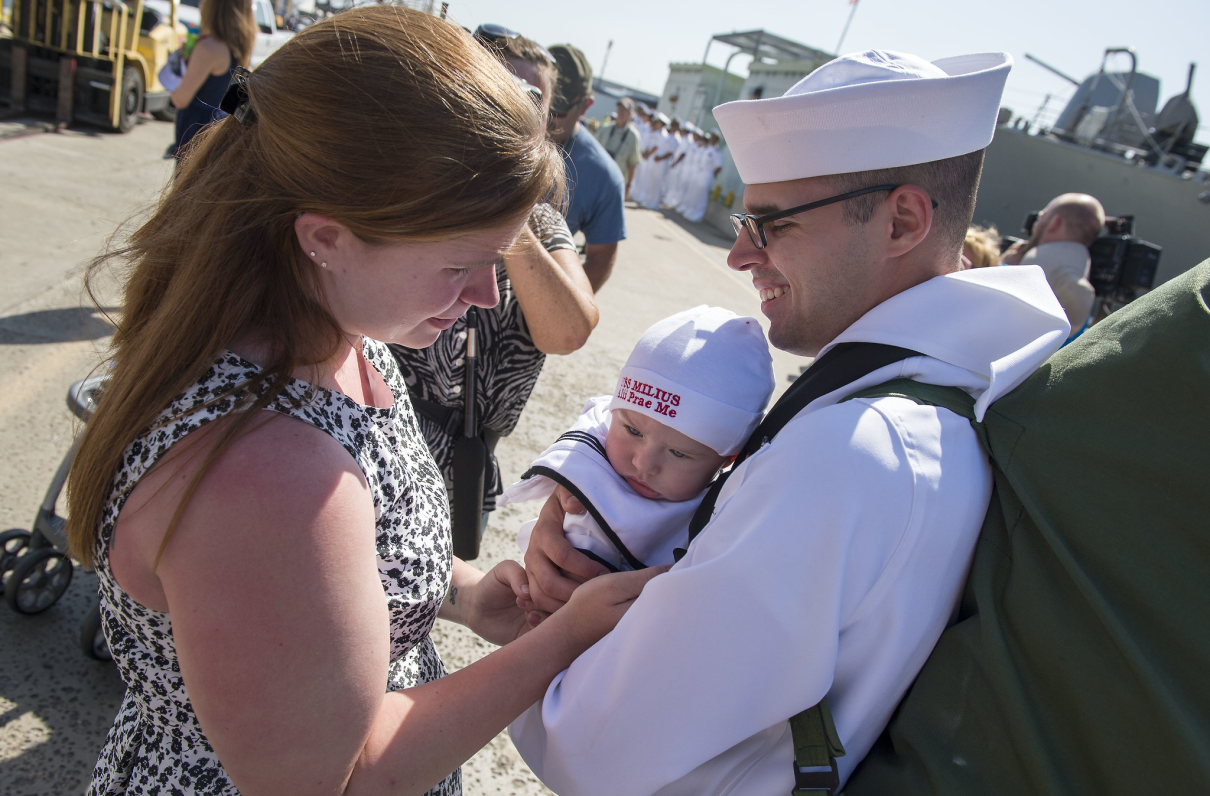MOAA shared details on its work to improve the TRICARE benefit for new moms and moms-to-be during a July 25 roundtable designed to increase awareness and improve support for military health system beneficiaries experiencing perinatal mental health conditions.
Mental health conditions are the most common complication of pregnancy and childbirth. If left untreated, they present risks to both mothers and babies. And TRICARE beneficiaries have a higher prevalence of maternal mental health conditions than the general population: While 1 in 5 mothers in the U.S. will experience maternal mental health conditions, they occur in more than 1 in 3 TRICARE beneficiaries.
A 2022 Government Accountability Office report found 36% of TRICARE beneficiaries’ perinatal periods included a mental health diagnosis. An additional 5% of perinatal periods included mental health prescriptions without a diagnosis, indicating that as many as 41% of TRICARE beneficiaries’ perinatal periods could include a mental health condition.
[RELATED: 6 Ways MOAA Wants to Improve Your Earned TRICARE Benefit]
TRICARE Improvements
Maternal health care has been a focus for MOAA in the 118th Congress. Together with the National Military Family Association, we have led efforts for a pilot program to include pregnancy as a TRICARE Qualifying Life Event (QLE), allowing beneficiaries to switch TRICARE plans to access vital prenatal care where it is available.
TRICARE beneficiaries who’ve experienced military health access challenges were among the attendees at the July 25 event hosted by the Maternal Mental Health Leadership Alliance (MMHLA) at the Women’s Service Memorial in Arlington, Va. They were pleased to learn the QLE provision has been included in the House version of the FY 2025 National Defense Authorization Act (NDAA). MOAA looks forward to leveraging relationships forged at the event to get this legislation included in the final version of the NDAA.
MOAA has also supported bipartisan legislation, the Maintaining our Obligation to Moms who Serve (MOMS) Act, that targets high rates of pregnancy-related mental health conditions in the uniformed services community. The legislation, led by Reps. Chrissy Houlahan (D-Pa.) and Don Bacon (R-Neb.), would create a pilot program to provide evidence-based perinatal mental health prevention programs within military treatment facilities.
[RELATED: MOAA Part of Public Workshop Informing Key Study of DoD Autism Care]
About the Event
Roundtable participants included uniformed servicemembers from the military health system, representatives of nonprofits supporting military families and providing maternal mental health resources, and staffers from DoD family support programs.
Goals for the roundtable included:
- Highlighting existing efforts to support maternal mental health in the military.
- Sharing information about additional programs to support maternal mental health.
- Ensuring participants are knowledgeable about the issues and their impact – including both maternal mental health conditions and the unique nature of the military health system.
The roundtable provided an opportunity for experts in military health care and experts in maternal mental health to build connections, share information, and identify action items and next steps to better support maternal mental health within the military health system.
MOAA looks forward to continuing our work with MMHLA to secure improvements to maternal mental health care.
Have More Questions About Your Health Care Benefit?
MOAA's TRICARE Guide answers some commonly asked questions.

